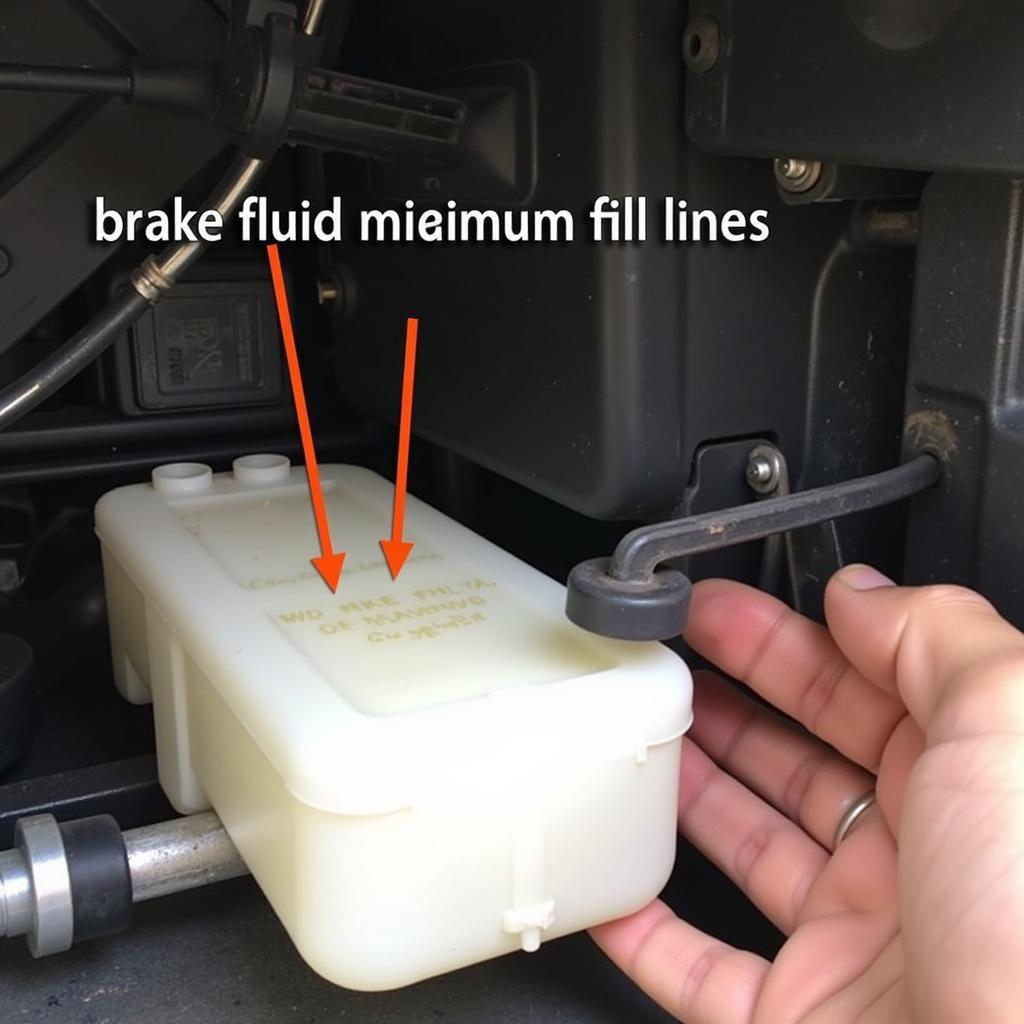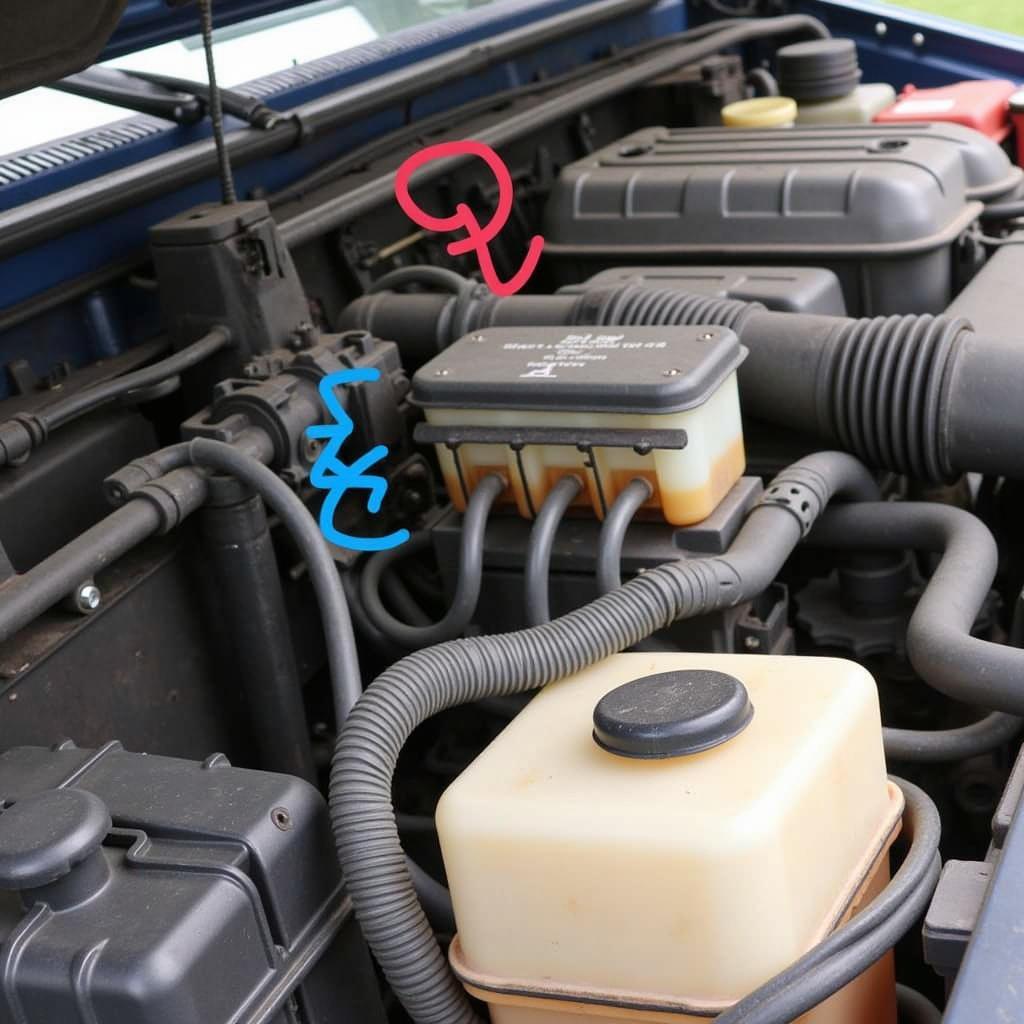Experiencing charging issues with your Club Car golf cart? You’re not alone. This common problem can stem from a variety of factors, ranging from simple fixes to more complex electrical issues. This comprehensive guide will walk you through the most frequent Club Car golf cart charging problems, helping you diagnose and solve them like a pro.
Understanding the Basics of Club Car Charging Systems
Before diving into troubleshooting, it’s crucial to grasp the fundamentals of how your Club Car charging system operates. These carts typically employ an onboard charger that converts AC power from a standard outlet into DC power, which then replenishes the batteries. Familiarizing yourself with the basic components, including the charger, receptacle, and battery pack, can significantly aid in pinpointing the source of charging problems.
Common Club Car Golf Cart Charging Problems and Solutions
Let’s explore some of the most prevalent charging issues Club Car owners encounter:
1. Cart Not Charging At All
This is often the first sign of trouble. Several culprits could be at play:
- Faulty Charger: The charger itself might be defective. Check for any visible damage to the charger or its cord.
- Loose Connections: Inspect the connections between the charger, receptacle, and batteries. Ensure they are secure and free of corrosion.
- Blown Fuse: A blown fuse in the charging circuit can interrupt the flow of electricity. Refer to your owner’s manual to locate and check the fuse.
- Bad Battery: A completely dead battery won’t accept a charge. Use a multimeter to check your battery voltage.
Quick Fix: If you suspect a faulty charger, try using a different charger known to be in working order.
2. Charger Turns On But Cart Doesn’t Charge
If your charger powers on but your cart still refuses to charge, consider these possibilities:
- Problem with the OBC: The onboard computer (OBC) manages the charging process. A malfunctioning OBC can prevent charging.
- Battery Issue: While not entirely dead, your batteries might have deteriorated to the point that they can’t hold a charge effectively.
- Wiring Problems: Damaged or corroded wiring between the charger and batteries can hinder the charging process.
Quick Fix: Try disconnecting the batteries and then reconnecting them to the charger. Sometimes, this simple reset can resolve minor communication issues.
3. Charger Gets Excessively Hot
An overheated charger signals a potential danger and should be addressed immediately:
- Overcharging: Continuous charging even when the batteries are full can lead to overheating. Ensure the charger automatically shuts off once charging is complete.
- Internal Charger Fault: A malfunctioning component within the charger itself can generate excess heat.
- Ventilation Issues: Obstructed airflow around the charger can trap heat, leading to overheating. Ensure proper ventilation.
Quick Fix: Immediately disconnect the charger if it becomes excessively hot. Allow it to cool down completely before attempting to use it again.
4. Charging Intermittently
Intermittent charging, where the process starts and stops unexpectedly, can be particularly frustrating:
- Loose Connections: Check all connections for any looseness or corrosion that could interrupt the flow of current.
- Faulty Receptacle: A damaged or worn-out receptacle can cause intermittent contact.
- Battery Problems: Batteries nearing the end of their lifespan might charge erratically.
Quick Fix: Wiggle the charger cord gently while it’s plugged in. If charging resumes or stops based on the cord’s position, it likely indicates a loose connection.
5. Batteries Not Holding a Charge
If your Club Car seems to charge but drains quickly, the problem likely lies with the batteries themselves:
- Old or Worn-out Batteries: Over time, batteries lose their ability to hold a charge effectively.
- Sulfation: Sulfation, a buildup of lead sulfate crystals on the battery plates, can hinder their performance.
- Deep Discharge: Regularly discharging the batteries too deeply can shorten their lifespan and affect their ability to hold a charge.
Quick Fix: If your batteries are old, consider replacing them with new ones. For sulfation, try using a battery desulfator to restore some of their capacity.
Advanced Troubleshooting and Remote Diagnostics
For persistent or complex charging problems that defy basic troubleshooting, seeking professional help is recommended.
“In today’s connected world, we can often diagnose and even resolve Club Car charging issues remotely,” says John Miller, a senior automotive electrical engineer specializing in remote diagnostics. “By accessing the cart’s onboard computer, we can pinpoint faults, analyze data, and even update software – all without the need for a physical visit.”
Conclusion
Troubleshooting Club Car golf cart charging problems often boils down to systematic checks and understanding the common culprits. By following this guide, you can tackle many issues independently. However, for persistent or complex problems, leveraging professional expertise, especially through remote diagnostics, can save you time, effort, and potential headaches. Remember, regular maintenance and timely attention to charging issues can significantly extend the life of your Club Car’s batteries and ensure enjoyable rides for years to come.
FAQs about Club Car Golf Cart Charging Problems
1. How often should I charge my Club Car golf cart?
It’s best to charge your Club Car after each use, especially if you’ve driven it for a significant distance. This helps to maintain the batteries’ health and lifespan.
2. How long does it take to fully charge a Club Car golf cart?
The charging time can vary depending on the battery capacity and the charger’s amperage. Generally, it takes between 8 to 12 hours for a full charge.
3. Can I leave my Club Car golf cart plugged in overnight?
It’s not recommended to leave your Club Car plugged in overnight unless the charger has an automatic shut-off feature. Overcharging can damage the batteries and shorten their lifespan.
4. What should I do if my Club Car golf cart batteries won’t hold a charge?
If your batteries are old or have been heavily used, they might need to be replaced.
5. Can extreme temperatures affect Club Car golf cart charging?
Yes, extreme temperatures, both hot and cold, can impact battery performance and charging.



